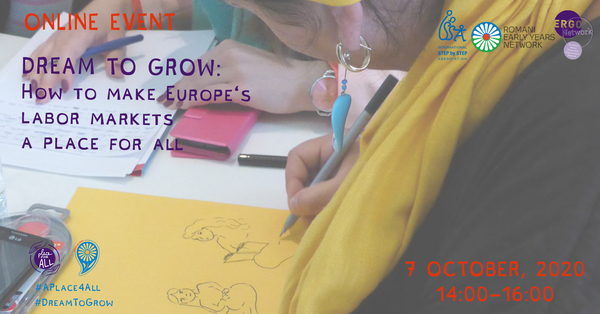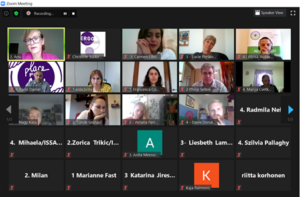CHACHIPEN – Project Launch event
CEPS, together with the Central Council of German Sinti and Roma, the European Roma Grassroots Organisations (ERGO) Network, the Federación de Asociaciones Gitanas de Cataluña (FAGIC), the Asociatia Fast Forward and the ARESEL Network of Romania, will launch a new project called “CHACHIPEN” (meaning truth in Romani language). The launch is organised in the run up to the 50th International Roma Day, which takes place on 8 April.
CHACHIPEN’s key objectives are to advance the recognition and response to historically-rooted and systemic antigypsyism, to achieve justice, equality, non-discrimination and the full participation of Roma as equal citizens across Europe. The project employs an innovative approach, through the model of “Truth and Reconciliation Processes” to review the past rights violations and ongoing structural discrimination towards Roma, which hinder the implementation of the EU non-discrimination acquis.
The opening high-level panel with Vera Jourova, Vice President of the European Commission for Values and Transparency, Dunja Mijatovic, Commissioner for Human Rights, Council of Europe among others, will situate the discussion on recognising historically rooted antigypsyism within the wider EU and national policy context, and will provide some individual live testimonies (see full agenda here).
We will then discuss how to increase recognition of antigypsyism, how can we rebuild trust between Roma and non-Roma, and what is role can mainstream institutions play. Our experts will also discuss the differences in approach, from the Truth and Reconciliation Commissions to the Expert Commissions on antigypsyism, as well as the role for Roma civil rights activism in the new EU Roma Strategic Framework for equality, inclusion and participation, and in the new EU anti-racism plan.
Organisers are looking forward to your questions and active participation and will ensure the translation of the conference into the Romani language. This session will be run in Zoom, you must register in advance to gain access to the meeting and the details to join will be sent one-hour prior of the event.
Relevant links:
Event link: 50th International Roma Day: Towards justice and building trust – CEPS
Registration link: 50th International Roma Day: Towards justice and building trust | Centre for European Policy Studies (ceps.eu)
Agenda of the conference: CHACHIPEN_-kick-off-
Project description: CHACHIPEN_-short-description_

This project is funded by the European Union’s Rights, Equality and Citizenship Programme (2014-2020). The content of the project’s outputs represents the views of the author only and is his/her sole responsibility. The European Commission does not accept any responsibility for use that may be made of the information it contains.





 The project honors women who brought tangible impact for Roma integration and empowerment in the Western Balkans and Turkey and provided political leverage enriching the policy dialogue of Roma integration with the cross-cutting issue of women empowerment.
The project honors women who brought tangible impact for Roma integration and empowerment in the Western Balkans and Turkey and provided political leverage enriching the policy dialogue of Roma integration with the cross-cutting issue of women empowerment.

